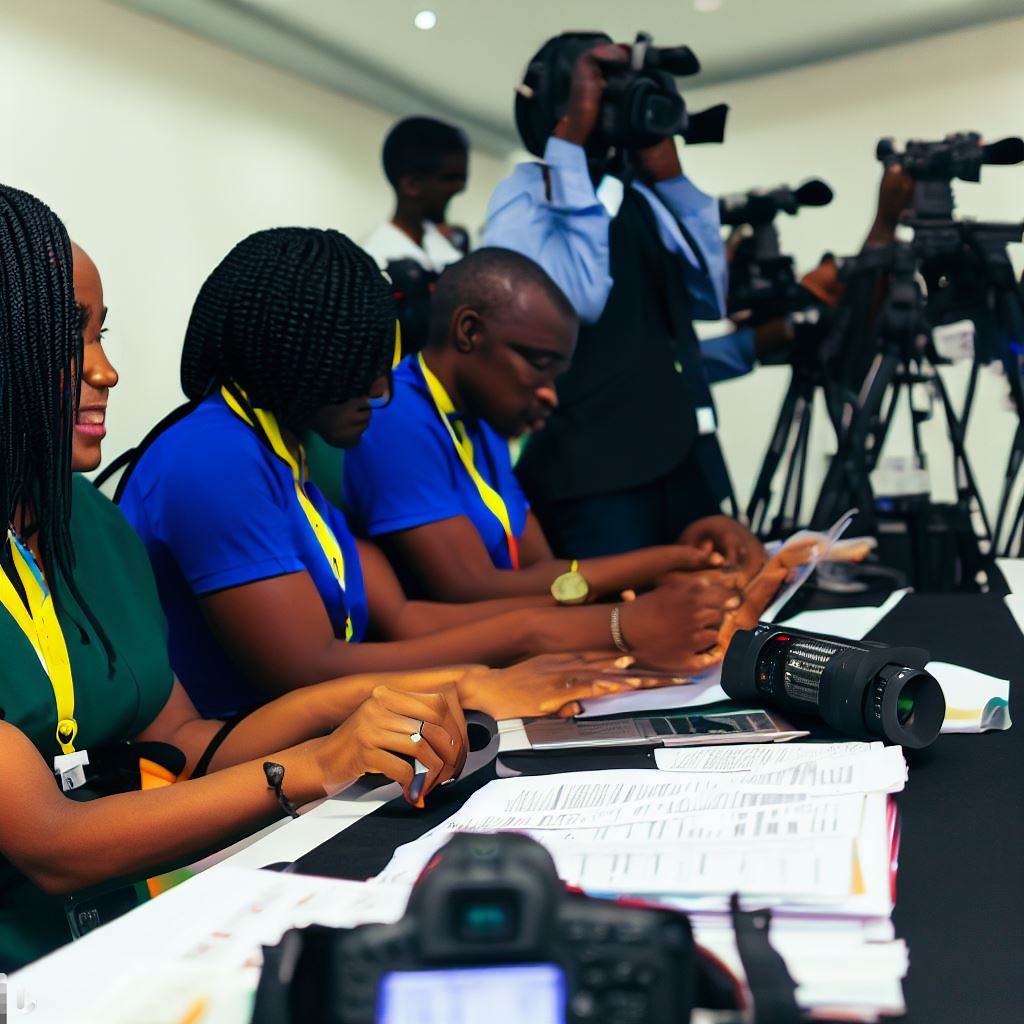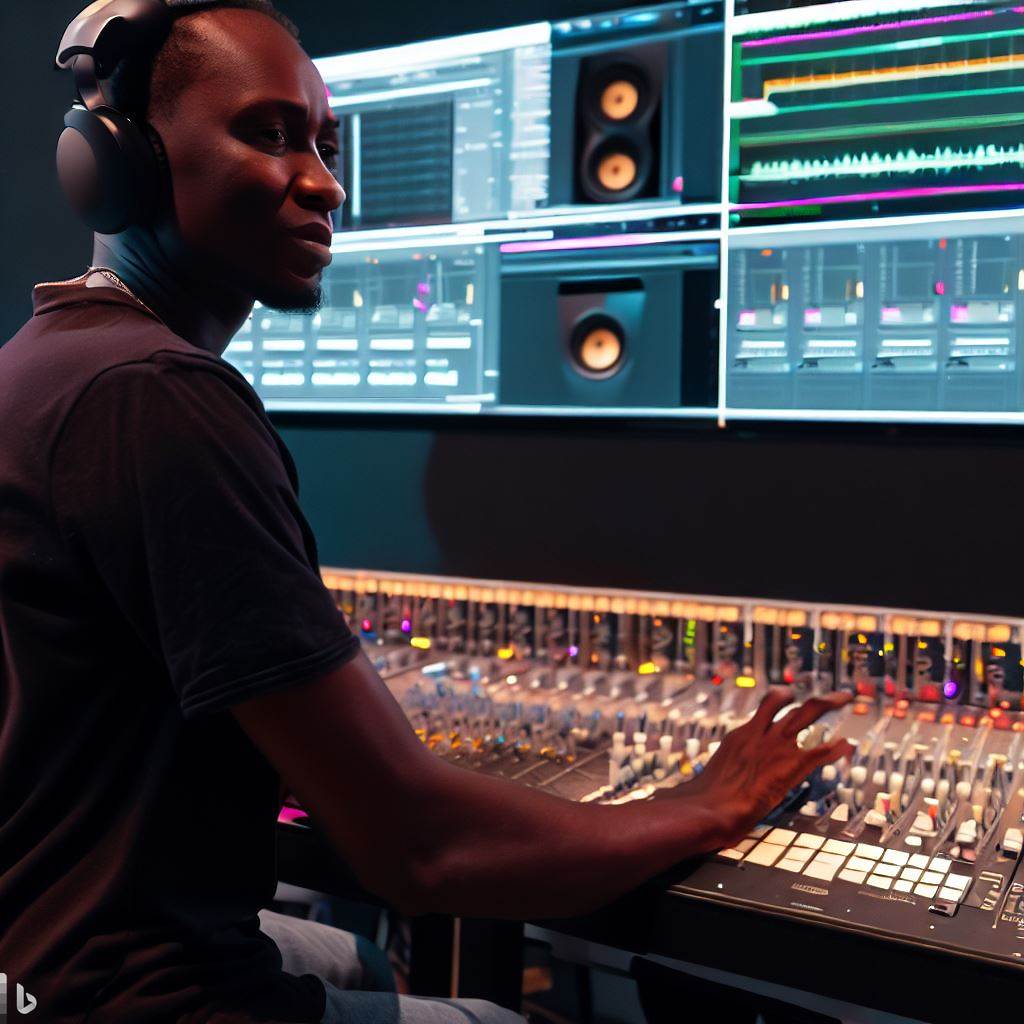Introduction
Journalism plays a crucial role in upholding democracy by providing information and promoting transparency.
In Nigeria’s context, the role of journalists in election coverage becomes particularly significant.
This blog post aims to explore the importance of journalism in democracy and provide an overview of the specific role journalists play in Nigeria’s election coverage.
The media serves as the fourth estate, acting as a watchdog, and holding those in power accountable.
In a democracy, an informed electorate is crucial, and journalists play a vital role in delivering accurate and unbiased information to the public.
Through their reporting, journalists shape public opinion, facilitate informed decision-making, and foster a broader political discourse.
When it comes to Nigeria’s election coverage, journalists serve as the eyes, ears, and mouthpieces of the public.
They act as intermediaries between politicians and citizens, conveying messages, policies, and electoral processes.
By providing comprehensive news coverage, investigative reports, and analysis, journalists enable citizens to stay informed about the electoral landscape, candidates, and relevant issues.
Journalists also play a critical role in ensuring transparency and fairness during elections.
They monitor and report on the conduct of politicians, the electoral commission, and other stakeholders.
This scrutiny helps to expose electoral malpractices, promote accountability, and deter fraud, ultimately safeguarding the integrity of the democratic process.
In short, journalism is a fundamental pillar of democracy, and its significance becomes even more pronounced in the context of Nigeria’s election coverage.
Through their role as information disseminators, facilitators of public discourse, and monitors of the electoral process, journalists contribute to informed decision-making, transparency, and the overall health of Nigeria’s democracy.
Pre-election Reporting
During the pre-election period, journalists in Nigeria undertake numerous responsibilities to provide accurate and unbiased information to the public.
This section focuses on three vital aspects of their role: investigative journalism, fact-checking, and candidate profiling.
Investigative journalism
Nigeria’s journalists are at the forefront of exposing corruption and malpractices.
They dig deep into various sectors, uncovering instances of corruption that may have an impact on the election process.
Through their in-depth investigations, journalists shed light on hidden agendas and ensure transparency in the political landscape.
Whether it is exposing financial misappropriation or revealing illegal practices, investigative journalists bring the truth to light.
They ensure that voters are well-informed and aware of any misconduct by candidates or political parties. By doing so, they contribute to fair and accountable elections.
Fact-checking and debunking misinformation
With the rise of social media, the responsibility of journalists to verify information has become even more critical.
False narratives and misinformation can significantly influence public opinion and skew election outcomes.
Thus, journalists have taken up the task of fact-checking and debunking false information.
Social media verification plays a significant role in this process. Journalists use various tools and techniques to verify the authenticity of information circulating online.
By providing accurate and verified information, journalists help citizens navigate through the noise and make informed decisions.
Candidate profiling
As voters, it is crucial to know the background, agendas, and promises of political candidates.
Journalists take up the responsibility of profiling candidates, and conducting extensive research on their past records and political affiliations.
This research allows journalists to present an unbiased overview of each candidate, enabling voters to evaluate their suitability for public office.
By analyzing candidates’ agendas and promises, journalists help voters understand the potential impact and feasibility of their proposed policies.
In fact, journalists in Nigeria play a vital role in pre-election reporting.
Through investigative journalism, they uncover corruption and malpractices, ensuring transparency in the electoral process.
They also fact-check and debunk misinformation to provide accurate information to the public. Additionally, journalists conduct candidate profiling to help voters make informed decisions.
By fulfilling these responsibilities, journalists contribute to fair and well-informed elections in Nigeria.
Read: The Future of Nigerian Journalism in a Digital Age
Election Campaigns
Reporting political rallies and events
- Capturing candidates’ speeches and messages.
- Assessing public response and sentiment.
Providing a platform for debates
- Organizing and moderating debates between candidates.
- Facilitating informed discussions among citizens.
Monitoring campaign spending
- Investigating financial contributions to candidates.
- Unveiling potential conflicts of interest.
The Role of Journalists in Election Coverage is pivotal for shaping democratic outcomes. In Nigeria, journalists hold a significant responsibility during campaign phases.
They attend political rallies, capturing candidates’ speeches to inform the public about promises and agendas.
Assessing public sentiment gauges candidates’ popularity. Journalists also organize debates, allowing citizens to evaluate policies and competence, fostering informed discussions.
Critical to transparency, journalists monitor campaign spending, investigating contributions for potential conflicts of interest.
Through comprehensive coverage, journalists empower voters with accurate information.
By capturing messages, assessing sentiment, organizing debates, and scrutinizing spending, they enrich the democratic process.
Read: Spotlight: Women Journalists Making a Difference in Nigeria

Election Day
Ensuring unbiased reporting
1. Observing the election process
Journalists play a crucial role in observing the election process to ensure transparency and fairness.
2. Reporting irregularities and addressing them promptly
Journalists need to report any irregularities they witness and take immediate action to address them.
Voter education
1. Providing information on voting procedures
Journalists should educate voters about the correct procedures to ensure a smooth voting process.
2. Encouraging voter turnout and addressing any barriers
Journalists can use their platform to motivate and address any issues that may discourage voters from participating.
Reporting live results
1. Collecting and disseminating accurate and timely information
Journalists must collect reliable data and share it with the public promptly, ensuring transparency.
2. Collaborating with election observers and authorities
Working together with observers and authorities helps journalists maintain the accuracy of their reports.
Read: The Future of Nigerian Journalism in a Digital Age
Post-election Analysis and Coverage
Analyzing election results
- Assessing implications for governance and policy-making
- Investigating voting patterns and demographic trends
Holding elected officials accountable
- Monitoring fulfillment of campaign promises
- Reporting on government performance and actions
Addressing post-election violence and conflicts
- Investigating any reported incidents
- Promoting peacebuilding and reconciliation
Read: Investigative Journalism in Nigeria: A Closer Look
Conclusion
Journalists play a crucial role in Nigeria’s election coverage.
They provide transparency, accountability, and promote informed decision-making among voters.
A free and responsible press is vital for the success of a democratic society.
Journalists should continue to prioritize unbiased reporting and investigative journalism.
By holding politicians accountable and ensuring the public has access to reliable information, journalists contribute to a fair and credible electoral process. Their role in Nigeria’s election coverage cannot be overstated.
As the country continues its journey towards political stability, the media must remain dedicated to their role as watchdogs of democracy.
By upholding the principles of impartiality and truthfulness, journalists can help foster trust between the government and the people.
Therefore, the Nigerian media must continue to strive for excellence in their coverage of future elections.
Only through a strong and independent press can Nigeria truly achieve a just and transparent electoral system.




